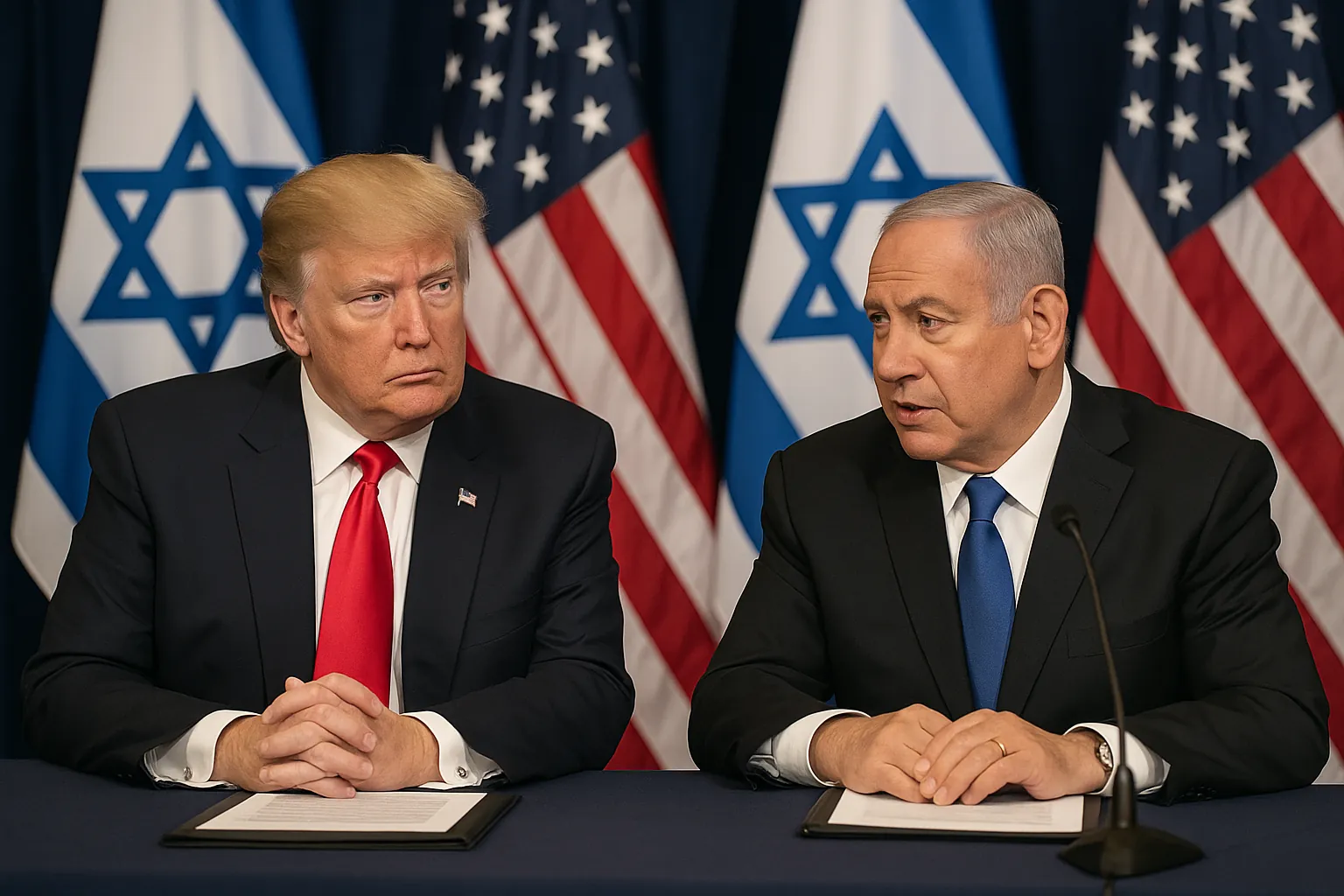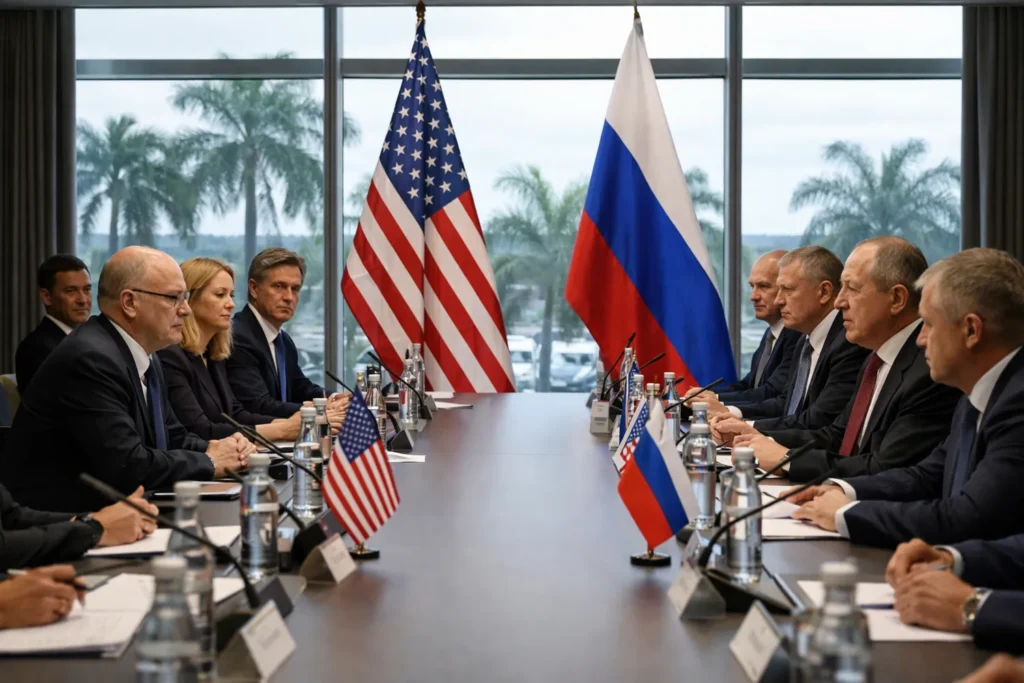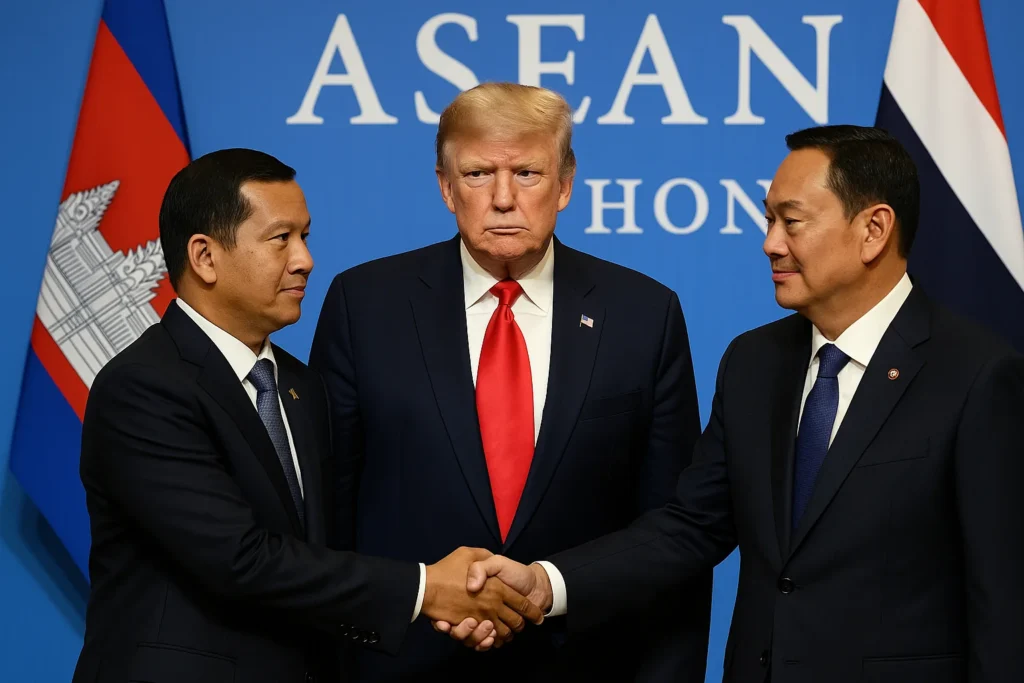Donald Trump secured Benjamin Netanyahu’s support for a U.S.-brokered Gaza deal. Yet the key question remains: will Hamas ever accept it? The so-called Trump Gaza deal promises a ceasefire, hostage release, staged Israeli withdrawal, Hamas disarmament, and a transitional government. On paper, it sounds like peace. In reality, it looks like another political mirage.
Context: The mainstream narrative
The U.S. frames the plan as a historic step. Trump presents himself as the peacemaker who can end a two-year war that has devastated Gaza, drained Israel, and destabilized the region. Netanyahu, under mounting pressure at home, nodded in agreement. The deal’s core: Israel withdraws in phases, Hamas disarms, and hostages are swapped. A transitional authority supposedly prepares Gaza for elections.
Reuters reports the White House calling this a “turning point” for the Middle East, comparing it to the Camp David accords. Western media echo the optimism, portraying Netanyahu’s acceptance as a breakthrough. Yet the glaring absence is Hamas, not consulted and unlikely to surrender arms voluntarily .
Oppositional Argument: Why the mainstream is wrong
The Trump Gaza deal is celebrated as if Netanyahu’s nod guarantees peace. But history tells us otherwise. Hamas holds real power in Gaza, not Netanyahu, not Trump. Any agreement without Hamas buy-in is theater. The mainstream celebrates a handshake while ignoring the elephant in the room: Hamas’ ideology, its survival strategy, and its deep distrust of both Israel and the U.S.
Trump’s approach mirrors his transactional worldview—secure the headline first, fix the substance later. Netanyahu plays along because it buys him international legitimacy at a moment when his Gaza offensive has drawn unprecedented global criticism. But without Hamas’ approval, the deal is just a press release.
Analytical Breakdown: Causes and consequences
Why did Netanyahu endorse the deal now? Domestically, his coalition is fractured, protests rage, and the war’s economic toll is mounting. Internationally, Israel faces growing isolation. By embracing Trump’s plan, he signals flexibility while placing the burden of rejection on Hamas.
For Trump, this is about reclaiming the global stage. With elections looming, he needs a foreign policy win. Gaza becomes his stage prop. The deal allows him to claim he “ended the war,” regardless of whether fighting resumes weeks later.
The consequences are dangerous. If Hamas refuses—and it almost certainly will—Trump and Netanyahu can frame the group as the obstacle to peace, justifying harsher military measures. Far from ending the war, the deal risks prolonging it under the guise of failed diplomacy .
Human Perspective: Life under endless deals
For Palestinians in Gaza, another American-brokered deal means little. Families who have buried loved ones, lived through bombardments, and lost homes see no relief in staged agreements. What matters to them is freedom of movement, reconstruction, and dignity. A transitional government led by outsiders does not promise that.
Israelis, too, remain skeptical. Many question whether security can be guaranteed if Hamas is merely expected to disarm voluntarily. Ordinary families want safety, not political theater. Yet once again, their lives are collateral to leaders chasing headlines.
Counterarguments
Supporters argue that any deal, even symbolic, reduces violence. They point to the possibility of a temporary ceasefire or partial hostage release as progress. But such arguments ignore the cycles of failure: Oslo, Annapolis, Trump’s own “Deal of the Century.” Each promised peace; each collapsed under the weight of exclusion and mistrust. Why should this time be different?
Conclusion: Another illusion of peace
The Trump Gaza deal exposes the bankruptcy of American diplomacy that seeks optics over substance. Netanyahu’s signature is meaningless without Hamas’ consent. Trump’s boast of ending the war rings hollow when rockets could resume tomorrow.
This is not peace. It is political theater—useful for Trump’s campaign and Netanyahu’s survival, but irrelevant to the people trapped in Gaza’s rubble. Until diplomacy treats Palestinians as real actors, not props, every “historic deal” will remain another illusion.
External Links
90 views






